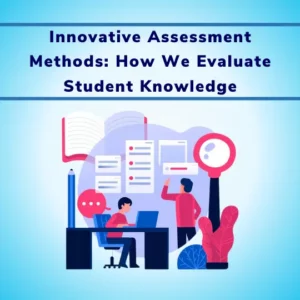What do you think of when you think of schools and colleges?
A classroom full of students furiously scribbling down notes while a teacher is droning on about a topic which is “very important for your midterms”.
Exams are a very important and indispensable part of education. They are important milestones in a student’s educational journey, and students are understandably stressed about them.
In an academic year, students have to give as many as 12 exams per semester, which means up to 24 exams in one year!
And believe it or not, teachers too are stressed about exams, after all, exams are a logistical nightmare and require a lot of planning. Right from setting a question paper, or rather different sets of question papers, printing those question papers and answer sheets, sending those question papers to exam centers in a secure manner, then collecting them and sending them to teachers to be corrected and finally publish the results.
This clearly requires a lot of time, money and manpower. By the time one examination is completed and its results published, it’s time to start planning for a new examination.
There is a serious need for new ways to conduct exams, planning, conducting and organizing exams puts a burden on teachers and eats up a lot of their time which they can better invest in their classrooms and students.
The Indian education system, in simple words, is huge. It has a number of three hundred and fifty million students, out of which seventy million students have been added to the higher education level in the last two decades itself.
Now to organize and conduct exams for millions of students is a very daunting task for many state and central education boards. Examinations conducted by various state boards and the Central Board of Secondary Education (CBSE) have been susceptible to paper leaks, due to various factors.
Apart from paper leaks, many universities also face a lot of problems with paper checking and publishing results. It takes a lot of time to check thousands of papers, and with the ongoing shortage of teachers, results can be delayed by months.
Similarly, college-level examinations too face a lot of problems which makes conducting them a tedious task.
Article Contents
How can we make conducting exams easier?
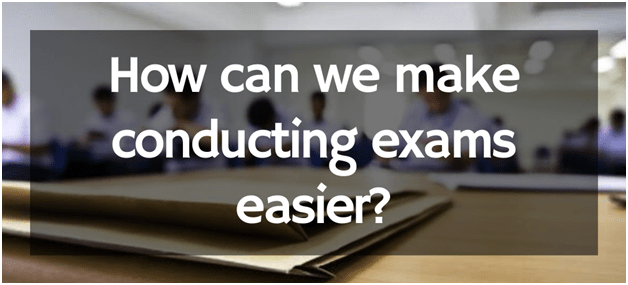
We live in an era where technology reigns supreme. Our daily lives are influenced by technology, right from waking up to an alarm set on your phone, ordering lunch on an online app (which knows your food preferences, thanks to wonderful AI algorithms which track your activity) and booking a cab to go back home.
Technology has made our lives easier, faster and more comfortable. Turning to our phones and the internet to answer a question is a natural instinct for many people. So, why don’t we turn to technology to answer the problems of conducting exams, and make it easier?
Online exams have gained wider acceptance in recent years and they come with a lot of advantages.
One of the benefits of conducting exams online is that it comes with many checks and balances to maintain the security of these exams and weed out any chances of malpractices. Traditional offline exams are prone to human errors which won’t be an issue with online exams.
Conventional, pen-paper based exams include a lot of coordination and manual work which is dreary and inclined to human error at different stages. With the expanding number of schools, colleges, educational institutions and clearly students, conducting exams has become a tedious process.
Online examinations give us an incredible alternative to conventional offline examinations. Technology provides multiple solutions to problems which traditional exams face nowadays.
With the help of an online examination system, examinations can be conducted across multiple locations, without the need for printing question papers for each examination center. The question paper is uploaded on the system and this digital format can be stored in an encrypted secure manner.
The online examination system also makes the process of setting question papers easy. Subject Matter Experts can design a question bank of questions that can be categorized subject wise, topic wise, sub-topic wise, difficulty wise and mark wise. The system then designs multiple sets of question papers and the exam moderator can select one of these sets for the examination.
Online examination systems also make the evaluation system of the answer sheets a very quick process. In the case of subjective examinations, evaluators can log in to the system and evaluate the answer sheets.
In the case of objective questions, the results are instantaneous.
How AI is bettering online exams
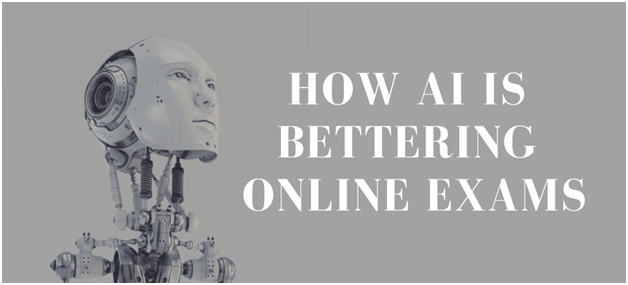
Artificial Intelligence and Machine Learning are the next crown jewels of technology. Artificial Intelligence has seamlessly transitioned into our daily lives, which we might have failed to notice. Consumers use more AI than they realize, while 77% of consumers actually use AI-powered device, only 33% of consumers realize that they are using an AI-powered device.

AI has made its way to many sectors, from healthcare to agriculture and finance, there are various applications of AI.
Did you know that AI is being used to predict if a person will have breast cancer in the next five years with a simple mammograph?
Since AI has so many benefits and so many varied applications, it has made its way to the education sector as well. Right from helping teachers with administrative tasks like taking attendance and grading assignments to give teachers feedback by analyzing the performance of students in tests, AI is transforming the education sector.
AI is also transforming the way we conduct online exams and it is making them more secure and easier to organize.
Here are a few ways in which AI is being used to conduct online exams:
Generative AI for Examination Simplification
Have you thought about the downsides of traditional exams? For a long time, schools have used pen and paper tests, but they’re not perfect. They don’t offer personalized feedback or consider how practical our learning is. They also miss out on the dynamic approach we need today to really understand a student’s skills, like problem-solving and applying knowledge.
Generative AI can change that. It offers a new way to test students that’s personal and focuses on real-world scenarios. With Generative AI, students get a case study and have to answer questions about it.
As they respond, the AI asks more questions, digging into how well the student understands the topic and how they solve problems.
After several rounds of this, Generative AI gives feedback that’s tailored just for them, based on their answers.
Generative AI assessment can provide personalized feedback to student about their weakness. It can help you to conduct frequent assessments targeted to provide continuous feedback to the student.
Generative AI can also be used to define examination question papers according to syllabus. It takes into consideration examination syllabus and define exam question paper.
AI-Powered Oral Assessment Innovation
Imagine a scenario in which a candidate records their responses to questions displayed on a screen. The candidate speaks the answer, which is saved as an audio file. Generative AI then converts this audio content into written text and evaluates the candidate’s abilities, domain knowledge, and problem-solving skills. In situations where you need to assess thousands of students without an examiner present, consider exploring the option of Generative AI-based oral or viva assessments.
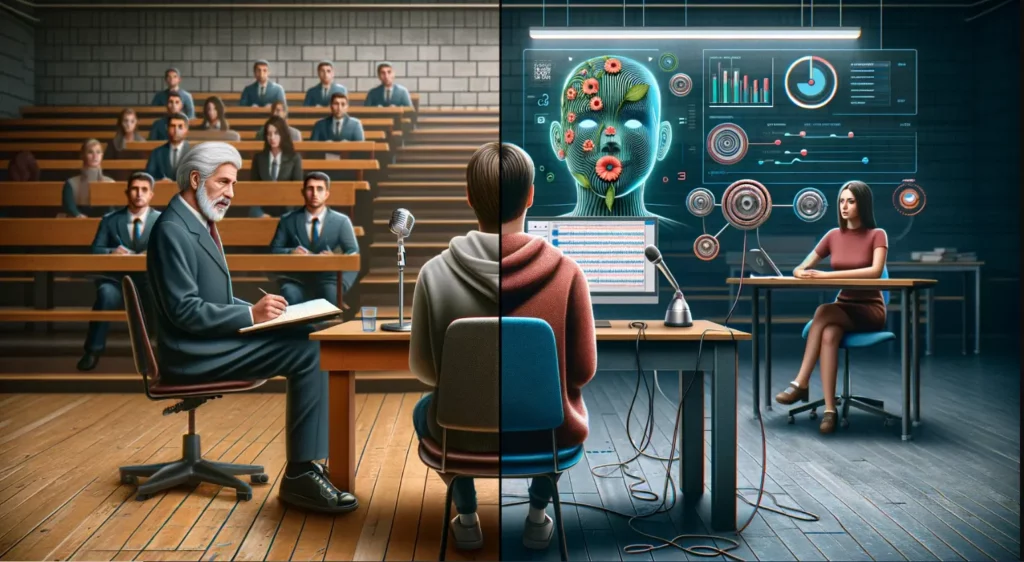
This method will undoubtedly provide personalized feedback for each individual student. Moreover, students will benefit from this technology-driven approach as they receive instant feedback on their performance.
Facial Recognition and Voice Recognition for Remote Proctoring

Remote proctoring is the process that makes it possible for many students to appear for online exams from the comfort of their home, and not travel to an examination center. One major reason why students opt for online exams is because of the accessibility that comes along with them.
On the other hand, institutes shied away from conducting offline exams because they were deemed insecure and prone to various malpractices like impersonation and copying.
Remote proctoring is the answer to the concerns of various institutes. A proctor is a person who is certified to oversee the examination process. A remote proctor can oversee the examination process from any location.
With the help of facial recognition and voice recognition technologies, remote proctoring has made online exams very secure. The candidate will be able to appear for the exam only when the system is able to verify their identity with facial recognition.
Once the examination begins, the audio and video feed of the student is recorded and sent to a remote proctor who will govern the exam.
AI is furnished with cutting edge facial recognition arising from the serious research work by engineers and neuroscientists over the years. To guarantee that students take no unfair way to expert a test, colleges utilize computerized auto-proctoring systems that depend on facial recognition.
Specialists have for quite some time been researching voice recognition to understand human speech. An audio-enabled auto proctor recognizes sound for authentication and matches it to any background noise to eliminate cheating instances by providing a graphical representation of the speech patterns.
Powered by facial and voice recognition technologies, auto-proctoring systems can easily moderate exams without the need for human intervention.
Onscreen Marking System
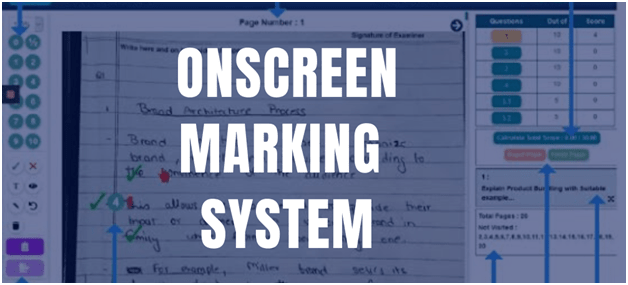
Online assessment tools can also help in simplifying examination answer sheet evaluation. Evaluating answer sheets manually is a tedious and time-consuming task and which is very heavily error-prone.
Result processing becomes challenging when thousands of answer sheets are evaluated by multiple examiners and the result has to be updated in the system to generate mark sheet.
Onscreen Marking System can help to simplify the evaluation process with the help of technology. Physical answer sheets are scanned and uploaded to the digital system. Examiners can evaluate answer sheets from any location.
Thus you get a handy online database of all answer sheets and you always have a backup with the Onscreen Marking System.
AI-powered tools to evaluate answer sheets
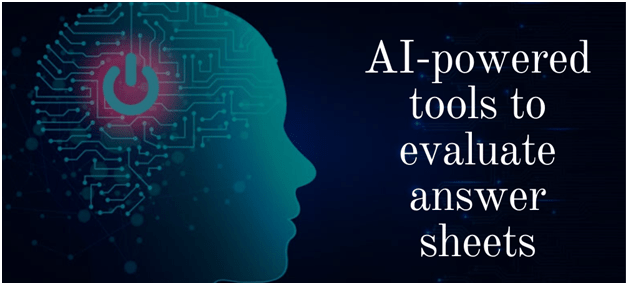
In China, one in every four schools is using AI to evaluate answer sheets. This is a machine learning-powered system that can score students’ work automatically, and even offer suggestions where appropriate.
Some online grading softwares can even read and understand the candidate’s handwriting and grade the examination sheets almost as well as teachers! These tools can easily identify numerals, alphabets and special symbols.
Another advantage of these AI-powered tools is that they also learn, like humans. So, if there are any errors made by the system and if they are reviewed and corrected by teachers, the system will not make the same mistake again, thanks to machine learning.
These tools are also much faster than teachers, some take as much as 90% less time to evaluate answer sheets. This means that results can be published soon after the exam is completed.
This can help tackle the shortage of evaluators in universities and save a lot of time and effort.
There are several advantages to using AI for the automatic evaluation of descriptive answers in online exams. Some of the benefits include:
Improved efficiency and accuracy in grading exams. AI algorithms can quickly and accurately evaluate large numbers of exam answers, reducing the amount of time and effort required to grade exams and allowing educators to focus on other aspects of teaching.
Enhanced objectivity and fairness in grading. AI algorithms are unbiased and consistent in their evaluation of exam answers, ensuring that all students receive the same level of evaluation and reducing the potential for human error or bias in grading.
Detailed and customized feedback for students. AI algorithms can provide detailed feedback on individual exam answers, highlighting strengths and weaknesses and providing suggestions for improvement. This can help students understand their performance and improve their skills.
Enhanced data analysis and reporting capabilities. AI algorithms can generate rich data sets from exam answers, allowing educators to track student performance, identify trends and patterns, and make informed decisions about teaching and learning.
Overall, the use of AI for the automatic evaluation of descriptive answers in online exams can provide a range of benefits for educators and students, improving the efficiency, fairness, and effectiveness of the exam process.
AI can provide teachers and students with feedback
Artificial Intelligence can track the performance of students in exams and quizzes and then it can provide teachers with detailed analytics of individual students’ performance and the performance of the batch as a whole.
With the help of these analytics, teachers will understand which concepts or topic areas are hard for students to understand and they can come up with new strategies to help students understand those topics.
Thus, with the help of AI teachers can analyze teaching techniques and strategies to which the students are most receptive. This makes learning easier for students and also decreases the burden on teachers.
AI can also be used to provide feedback to students. AI can understand and adapt to a student’s grasping power and learning abilities and can come up with personalized methods that will help the student understand a particular concept with maximum attention and retention.
AI systems can also alert teachers if a particular student is lagging behind their batch in particular subjects or subjects. With the help of this feature and analytics, teachers can work with the pupil on a personal level so that they understand concepts and do not lag behind.
What’s next?
Artificial Intelligence (AI) and Machine Learning (ML) are playing an increasingly important role in online exams, helping to enhance security and prevent cheating. One of the ways that AI and ML are used in online exams is through the use of facial and voice recognition technologies.
Facial recognition systems use AI algorithms and machine learning to identify and authenticate individuals based on their facial features. These systems can be used to confirm the identity of students before they begin an online exam, helping to prevent impersonation and other forms of cheating. Some facial recognition systems are even more accurate at identifying individuals than humans, making them a valuable tool for enhancing the security of online exams.
Voice recognition systems use similar technologies to identify and authenticate individuals based on their voice. These systems can be used to confirm the identity of students during an online exam, and can also be used to monitor students for signs of cheating. For example, a voice recognition system might be able to detect if a student is receiving assistance from someone else, or if they are using unauthorized materials during the exam.
Overall, the use of AI and ML in online exams is helping to enhance security and prevent cheating, allowing educators and institutions to administer exams with greater confidence and integrity.
AI-powered online examination systems have made the lives of many teachers and students very easier. Teachers have benefitted from the lessened burden of conducting and organizing exams. They have also benefited from the feedback which online examination systems provide.
Students, on the other hand, have benefitted from an easier and more secure way to give exams.
AI is still playing a very small role in online exams. We can be sure to see more applications of AI in online exams, to an extent where the need for human intervention in the exams will be completely eliminated.
About the Author

Swapnil Dharmadhikari
Swapnil has experience of more than 15 years in the Information Technology sector. He has been working on digital platforms in the education sector. Swapnil is an avid reader and writes articles on technology and leading developments in the education and IT sectors.
Swapnil is the founder of Splashgain, an Education Technology company from India working on various innovative EdTech platforms for examinations, proctoring solutions, digital admission process and more. Splashgain has been working with many educational institutes and universities for AI-powered innovations and solutions to transform the education sector.
Splashgain has also filed a patent for an innovative product based on AI.
My team and I thank you for the flawless conducting of an online test for The J N Tata Endowment as part of the selection process for its loan scholarship program.
It was very thoughtfully organized and conducted.
We could see that a lot of thinking had gone into ensuring success considering that many students took this test in various parts of India and overseas countries.
We thank you and your team for their prompt response.
They were always there to support us and we appreciate this.
We wish you and your team all the best for your future endeavors

Tj Ravishankar
Director Tata trust endowment
As a completely online academy, we were looking for a partner to conduct our exams in a highly secured manner – including machine learning based proctoring algorithm.
After going through various global tools and services, we stumbled upon Eklavvya.
A chat with their CEO and the support team, we knew that we had found the company that we have in mind for our online assessments.
With Eklavvya, we have already conducted hundreds of proctored online exams.
Thanks to the Eklavvya team for the support in making it happen.

Sachin Sadare
CEO, Digital Dojo Pvt. Ltd.
Eklavvya platform is amazing to conduct secure online exams for any age group.
We have successfully conduct remote proctored assessments for our International Olympiad exams for students in the age group of 6 to 18 years.
We conducted thousands of such assessments and counting…
The Eklavvya platform has simplified our examination process to a great extent.
It gives the flexibility to students to take the exams from home while being remotely proctored by Ekavvya’s Proctors.
Students were able to appear for online exams of mathematical questions with simple, user-friendly features of the online assessment process.
Mock exams helped prepare them to a great extent.
The system is very easy to understand and extremely user friendly.
Eklavvya’s account management team has been very understanding our needs and customizing the solution.
Thanks for excellent platform and support

Debraj Chakravarty
Global Olympiads Academy
We have been using the Eklavvya assessment tool to evaluate and assess different stakeholders (both internal and external) in Syngenta.
The Eklavvya assessment tool has helped us streamline the over learning experience of our employees and made our work much easier.
Having used the platform for over two years now, I can say it with confidence that tool is very effective AND very simple to use for both the assessor and the assessed

Abhijeet Dasgupta
Capability & Learning LEAD, India Syngenta
The entire examination experience for we at MIT School of Distance Education and our students has changed since we have partnered with Eklavvya platform.
The once very complicated system of getting the question banks ready to get uploaded, making any corrections in them has just vanished.
Very simple registration process, swiftly created exams, easy-to-use interface, proctored examination link, proctored invigilation reports, examination videos and ever ready to customise requirements, we find Eklavvya to be a one-stop-destination for all exam requirement for any educational institution.
We are able to follow a exam pattern and monitor the exam performance of every student without any hassle. Eklavvya – we definitely see it to be a World Class Technology Partner.

Annie Francis
Registrar- MIT SDE MIT Group of Institutions
I appreciate Online Exam platform developed by Eklavvya solution, Pune .
I have managed to conduct IT Flair Hunt Contest for more than 10000 students from 12 schools.
We at Sys Computers, are finding Online Exam activity simplified with Eklavvya solution.
Looking forward for the continued support in the future for college level talent hunt initiatives.
Platform is user friendly and it is easy to configure

Abhijit joshi
Sys Computers, Senior Partner



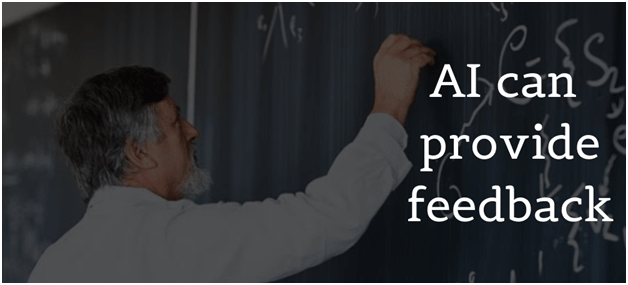

![How Government-Led Exams at 250+ Locations Are Setting New Standards of Integrity [Case Study]](https://www.eklavvya.com/blog/wp-content/uploads/2024/04/Enhancing-Exam-Integrity-Government-Certification-in-250-Locations-150x150.webp)
![Transforming Central Govt. Exams Evaluation: How Onscreen Marking is Leading the Charge [Case Study]](https://www.eklavvya.com/blog/wp-content/uploads/2024/04/How-Onscreen-Marking-Revolutionized-Central-Govt-Exams-Case-Study-1-150x150.webp)
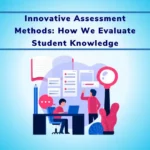

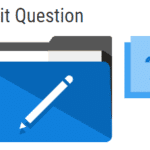
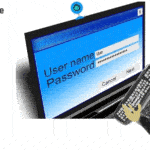
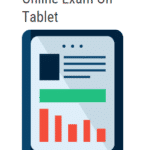








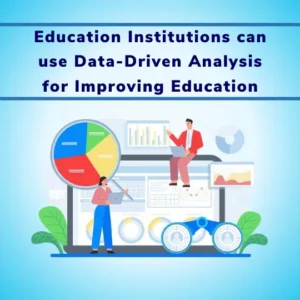
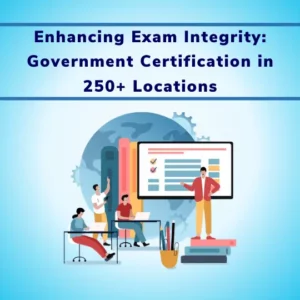
![How Onscreen Marking Revolutionized Central Govt Exams [Case Study]](https://www.eklavvya.com/blog/wp-content/uploads/2024/04/How-Onscreen-Marking-Revolutionized-Central-Govt-Exams-Case-Study-1-300x300.webp)
